Listening for you:
https://prosv.ru/audio/audio-product/angliiskii-yazik-audiokurs-7-klass203/ (ссылка для скачивания)
27/12/25
Winnie-the-Pooh and Christmas Too (follow the link to watch)
Winnie-the-Pooh Very Merry New Year (follow the link)
22.12 .25
Повторяем песни к 24.12
15/12/25
Степени сравнения наречий often часто, quickly быстро, slowly медленно образуются обоими способами:
Положительная степень | Сравнительная степень | Превосходная степень |
often | oftener, more often | oftenest, most often |
Примечание. Most употребляется перед наречием не только для образования превосходной степени, но и со значением крайне, весьма:
They listened to the teacher most attentively.
Они слушали преподавателя крайне внимательно.
Не did his work most carefully.
Он сделал свою работу весьма тщательно.
Следующие наречия, как и соответствующие им прилагательные, образуют степени сравнения не по правилу:
Положительная степень | Сравнительная степень | Превосходная степень |
well хорошо | better лучше | best лучше всего (всех) |
13/12/25
Degrees of comparison (SB p 91)
At home:
Compare:
attractive, fragile, boring, independent, attentive, slim, stupid, short, cheerful, ugly, clever, polite, shy, lazy, pleasant, noble, greedy, modest, smart, fat, young, wicked, wise, brave, sad, tidy, lovely, free
6/12/25
Order of Adjectives - let's learn to describe:
04.12.25
You have received an email message from your English-speaking pen-friend Susan:
From: Susan@mail.uk |
To: Russian_friend@oge.ru |
Subject: Friends an friendship |
… I am doing a project about friends and friendship. I’d like to learn more about Russian teenagers. … How many close friends do you have and why do you think they are true friends? What are your friends’ favourite pastimes? Why is friendship important in your life? |
Write a message to Susan and answer her 3 questions.
Write 100–120 words.
Remember the rules of email writing.
let's train 👉👉👉Future Perfect, Present Perfect and Past Perfect
№1
1. He ….. by seven o’clock.
a) will come b) will have come c) comes
2. Jane …..the article yet.
a) has not translated b) had not translated c) translated
3. When I came, I saw that mother….. dinner.
a) have cooked b) had cooked c) has cooked
4. She …..just …. dinner.
a) had….had b) have…..had c c) has…had
5. My friend ….. English before he entered the institute.
a) had studied b) studied c) has studied
6. …. you ….. everything by this evening?
a) Will…finish b) Will… have finished c) Do…finish
7. She is free now. She…..her final exam.
a) had passed b) has passed c) passed
8. The car ….. when I looked into the street.
a) went b) had gone c) has gone
9. Look! Somebody…..my window.
a) broke b) had broken c) has broken
10. We …..washing up by the time mother comes.
a) will have done b) will do c) do
№2
1. I ….. where to go tonight.
a) didn’t decide b) have not decided c) had not decided
2. Brian….. dinner by the time mother comes.
a) will have b) have c) will have had
3. He….. the decision before I came.
a) have taken b) had taken c) took
4. He….. translating by the evening.
a) will have finished b) finishes c) will finish
5. Nick….. from office by seven o’clock.
a) returned b) has returned c) had returned
6. ….John …… to London?
a) Did… be b) Has…ever been c) Have…ever been
7. We went to the stadium at four o’clock but the game ….
a) started b) has started c) had started
8. By the time we get to Chicago this evening, we….. more than four hundred miles.
a) drive b) will drive c) will have driven
9. He is sure that we….. him.
a) had not recognized b) have not recognized c) didn’t recognize
10. He ….. the text and now he can retell it.
a) read b) has read c) had read
№ 3
1. They…. us by the time they have to leave Ukraine.
a) will meet b) will have met c) meet
2. I …. all the new words. Now I can translate this text.
a) have learnt b) had learnt c) learnt
3. The ship ….. in the open sea by the time the storm broke out.
a) have been b) had been c) was
4. Meg said that she….. in this city.
a) had been b) was c) has been
5. We….. home but our children came home an hour ago.
a) have just come b) had come c) has just come
6. Jane …..at the cinema this week.
a) had not been b) has not been c) have not been
7. Come over to my house around 9 o’clock. By then, I …. my history essay and we can go to see a movie.
a) complete b) will complete c) will have completed
8. The doctor arrived by the time we …. him.
a) had helped b) helped c) have helped
9. When did he see you? – He …. me this week.
a) had seen b) has seen c) saw
10. Jake…. the letter by five tomorrow.
a) will finished b) will have finished c) finishes
№ 4 Поставьте глагол в форму
Present Perfect, Past Perfect или Future Perfect.
to arrive
- Our taxi … by 9 o’clock yesterday morning.
- Let’s go. The guests already … .
- They … by the time the meeting starts.
to be
- I am tired of waiting. Where you … ?
- By the time I’m 30 I … a famous scientist.
- He didn’t remember where he … before the accident.
to paint
- We … the house by next Tuesday.
- She … more than 10 pictures already.
- I wondered if they … the room.
№ 5Раскройте скобки, употребив глагол в форме
Present Perfect, Past Perfect или Future Perfect.
- Sam … (lose) his keys. So he can’t open the door.
- When I woke up in the morning, the rain already … (stop).
- I hope I … (finish) my test by midnight.
- The film turned out to be much longer than we … (expect).
- My sister just … (leave) for the bank.
- The girls were good friends. They … (know) each other for 5 years.
- Mother … (lay) the table before we come (before we came).
- I never … (try) Japanese food.
- Ted was so happy because his dream … (come) true.
- We … (be) to Paris many times.
Present Perfect and Past Perfect
The present perfect tense is used to describe actions or events that happened at some indefinite point in the past but are still relevant or connected to the present moment. It’s formed using the verb “have” (or “has” for he/she/it) + the past participle of the main verb. For example, “She has finished her homework.”
The past perfect tense is used to talk about an action that was completed before another action in the past. It helps describe the earlier of two past events. This tense is formed using “had” + the past participle of the main verb. For example, “She had finished her homework before dinner.
👉👉👉At home: Exercise: Fill in the Blanks with Present Perfect or Past Perfect
- She ______________ (never/see) such a beautiful sunset before.
- By the time we arrived, the movie ______________ (already/start).
- I ______________ (just/finish) my homework.
- When we got to the airport, the plane ______________ (already/take) off.
- They ______________ (never/visit) London before.
- I ______________ (live) in this city for five years.
- Before moving to New York, she ______________ (work) in Los Angeles.
- He ______________ (already/read) the book, so he didn’t want to watch the movie.
- We ______________ (not/see) each other since last summer.
- She ______________ (just/call) to say she is coming.
- By the time I reached the station, the train ______________ (leave).
- I ______________ (never/be) to Japan before.
- He ______________ (finish) his work before the deadline.
- We ______________ (meet) before at a conference.
- She ______________ (cook) dinner before her guests arrived.
- They ______________ (already/buy) the tickets for the concert.
- The teacher ______________ (not/check) the assignments yet.
- After I ______________ (complete) the project, I took a break.
- He ______________ (visit) his grandmother three times this month.
- Before the storm started, they ______________ (close) all the windows.
Examples of Present Perfect
Subject | Auxiliary Verb | Past Participle | Example Sentence |
I/We/You/They | have | finished | We have finished our work. |
He/She/It | has | eaten | He has eaten lunch. |
Examples of Past Perfect
Subject
Auxiliary Verb
Past Participle
Example Sentence
I/You/He/She/It/We/They
had
seen
I had seen the movie before they recommended it.
Subject | Auxiliary Verb | Past Participle | Example Sentence |
I/You/He/She/It/We/They | had | seen | I had seen the movie before they recommended it. |
Present Perfect vs Past Perfect – Exercises
These exercises focus on Present Perfect vs Past Perfect
IDIOMS
Like the cat that got the cream
Like a cat on hot bricks
Has the cat got your tongue?
Put the cat among the pigeons
A fat cat
While the cat is away, the mice will play
Let the cat out of the bag
Guess the idiom
Make an idiom complete
A good dog dogs lie
Every dog has deserves a good bone
An old dog will manger
Let sleeping a lion at home
Every dog is learn no new tricks
Dumb dogs are but the caravan goes on
The dogs bark, are dangerous
A dog in the its day
phrasal verb to turn
turn around
turn out
turn over
turn up
turn into
turn inside out
turn upside down
turn up
turn down
turn on
turn off
You have received an email message from your English-speaking pen-friend Ann:
From: Ann@mail.uk |
To: Russian_friend@oge.ru |
Subject: The life of modern teenagers |
… I am doing a project about the life of modern teenagers in different countries. I’d like to know about Russian teenagers. … How big is your family, what members of the family have you got? What do you like to do in your free time? Have you got any family traditions? What are they? |
Write a message to Ann and answer her 3 questions.
Write 100–120 words.
Remember the rules of email writing.
cactus-cacti
Verbs not used with Continuous Tenses
В английском языке существуют глаголы, которые не употребляются во временах Continuous, они употребляются только во временных формах Simple.
Глаголы эмоционального состояния
to wish – желать
to desire – желать
to want – хотеть
to envy – завидовать
to hate – ненавидеть
to like – нравиться
to love – любить
to prefer – предпочитать
to fear – бояться
to need – нуждаться
to satisfy – удовлетворять
to seem – казаться
Глаголы мыслительной деятельности
to believe – верить
to deny – отрицать
to doubt – сомневаться
to expect – полагать
to forget – забывать
to know – знать
to recognize – узнавать
to remember – помнить
to respect – уважать
to suppose – предполагать
to think* – считать, полагать
to understand – понимать
Глаголы ощущения
to hear* – слышать
to see* – видеть
to taste* – иметь вкус
to smell* – пахнуть
to feel* – ощущать
Глаголы обладания, отношения
to be* – быть
to consist – состоять
to belong – принадлежать
to contain – содержать
to have* – иметь
to include – заключать в себе
to possess – обладать
to own – владеть
Внимание! Глаголы отмеченные * могут употребляться в форме Continuous, но только с изменением значения. Они выражают не состояние, а действие. Сравните следующие примеры глаголов:
Глаголы употребленные в форме Simple | Глаголы употребленные в форме Continuous |
to think – считать, полагать | to think – думать, размышлять |
to hear – слышать | to hear = to listen to – слушать, выслушивать |
to see – видеть | to see = to look at – смотреть, встречаться |
to taste – иметь вкус | to taste – пробовать на вкус |
to smell – пахнуть | to smell = to sniff– нюхать |
to feel-ощущать | to feel – трогать, щупать |
to be – быть | being (используется для обозначения временного действия) I am a lawyer. Я – адвокат (=Я есть адвокат). You are being so rude today! Ты сегодня такой грубый! (= временное состояние). |
to have – иметь | to have – употребляется в Continuous с некоторыми существительными и образует одно действие: |
Примеры:
I think he is a good person. – Я думаю, что он хороший человек (мое мнение).
I am thinking about my next exam all the time. – Я думаю о своем следующем экзамене все время (мыслительная деятельность).
I have an expensive car. – У меня (есть) дорогая машина.
I am having a rest just now. – Я сейчас отдыхаю.
I see a dog. Я вижу собаку.
I am seeing Jack on Monday. Я встречаюсь с Джеком в понедельник.
I am seeing a doctor at 5 o`clock. Я иду на приём к врачу в пять часов.
I feel she`s making a mistake. Я чувствую, что она делает ошибку. (= мое мнение)
I am feeling very tired today. Сегодня я чувствую себя очень усталой.
The soup tastes wonderful! Суп восхитителен! (=имеет восхитительный вкус)
I am tasting a new salad. Я пробую новый салат.
The chicken smells good. Цыпленок вкусно пахнет.
I am smelling the rose. Я чувствую запах розы.
ex 2 Use Present Continuous, Present Simple or Future Simple.
1. I (to play) chess tomorrow. 2. I (not to play) chess tomorrow. 3. You (to play) chess tomorrow? 4. He (to play) chess every day. 5. He (not to play) chess every day. 6. He (to play) chess every day? 7. They (to play) chess yesterday. 8. They (not to play) chess yesterday. 9. They (to play) chess yesterday? 10. Nick (to go) to the park yesterday. 11. Nick (to go) to school every day. 12. Nick (to go) to school tomorrow. 13. You (to come) to my place next Sunday? 14. You (to read) this book next week? 15. You (to read) books every day? 16. You (to read) a book yesterday? 17.I (not to see) him tomorrow. 18. What you (to do) tomorrow? 19. What your friend (to do) tomorrow? 20. Where you (to go) next summer? 21. Where you (to go) every morning? 22. Where you (to go) yesterday? 23. Look! Mary (to dance). 24. She (to dance) every day. 25. She (to dance) tomorrow? 26.She (to dance) yesterday?
👉Follow the example:
Dear Alice,
Thank you for your email. I'm glad to hear from you again.
In your email you ask me about ... (subject). Well, ... (ответы на 3 вопроса).
That's all for now. Keep in touch.
Love,
Ann
28.05.20 Структура I WISH...

26.05.20 DO/MAKE
UNLESS, IF
Разница между этими союзами довольно ощутимая. Можно даже назвать их антонимами. Слово if переводится как «если», а слово unless - как «если не». Например:
If they invite me to the party, I’ll go. - Если они пригласят меня на вечеринку, то я пойду.
Unless they invite me to the party, I won’t go. - Если они не пригласят меня на вечеринку, то я не пойду.
Во многих грамматических источниках формула употребления данных союзов изображается так: Unless=If not. И это, на самом деле, так. Рассмотрим еще пару примеров, обращая внимание на перевод:
If you get a chance, give me a call. - Если выдастся минутка, позвони мне.
Remember, you can’t come in, unless I call for you. - Запомни, тебе нельзя входить, пока я тебя не позову.
В связи со схожим значением, союзы if и unless могут быть взаимозаменяемы. Однако это возможно, только если в предложении есть какое-нибудь отрицание.
If we don’t find another solution, we’ll have to act according to your plan.= Unless we find another solution, we’ll have to act according to your plan. - Если мы не найдем другого решения, нам нужно будет действовать в соответствии с твоим планом.
If you don’t hurry up, you’ll be late. = You’ll be late, unless you hurry up. - Если не поторопишься, опоздаешь.
Как видно из примеров, в предложениях с союзом unless нет надобности использовать частицу not, так как отрицание уже встроено в него.
We use 'no article' with:
- Lakes: We visited Lake Geneva.
- Mountains: I saw Mount Fuji from the aeroplane.
- Continents: She loves living in Asia.
- Most countries: She travelled to Chile last year. (But: The USA / the United States, the Netherlands, the Philippines, the United Kingdom / the UK.)
- Counties, states, provinces, regions: They live in California.
- Cities, towns, villages: He stayed in Paris for a week last year.
- Islands: Bali is popular with Australian tourists.
- Rivers: The River Nile flows through Egypt.
- Mountain ranges: We ski in the Alps every year.
- Deserts: She travelled across the Sahara.
- Oceans and seas: We sailed around the Mediterranean.
- Groups of islands: They went to the Canary Islands.
Museums, galleries, monuments, memorials, cathedrals, palaces, places of interest
Article the:
No article:
Parks, national parks, amusement parks, gardens, squares, streets, bridges
No article:
Hotels
Article the:
25.05.20 Условные предложения:
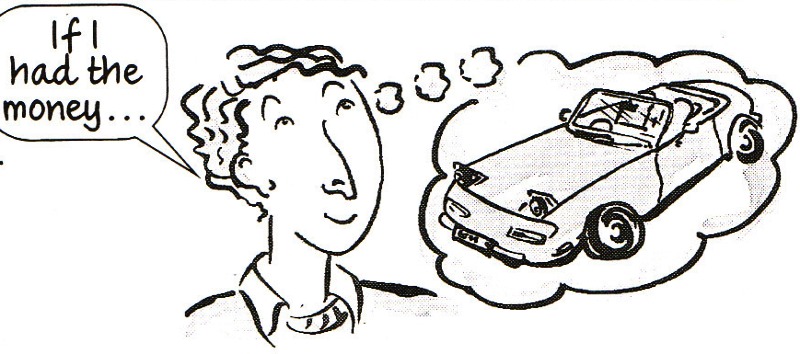



- If he … (practice) every day, he … (become) a champion. (Если он будет тренироваться каждый день, он станет чемпионом.)
- She … (help) us if we … (ask). (Она поможет нам, если мы попросим.)
- If they … (have) enough money, they … (open) a restaurant next year. (Если у них будет достаточно денег, они откроют ресторан в следующем году.)
- I … (not talk) to you anymore if you … (insult) me. (Я не буду с тобой больше разговаривать, если ты обидишь меня.)
- If Bob … (not keep) his word, Anna … (be angry) with him. (Если Боб не сдержит слово, Анна разозлится на него.)
- If you … (have) a driving license, you … (get) this job. (Если бы у тебя были водительские права, ты бы получил эту работу.)
- My dog … (be) 20 years old today if it … (be) alive. (Моей собаке исполнилось бы 20 лет сегодня, если бы она была жива.)
- I … (go) to the police if I … (be) you. (Я бы обратился в полицию на твоем месте.)
- If people … (not buy) guns, the world … (become) safer. (Если бы люди не покупали оружие, мир стал бы безопаснее.)
- Tom ... (not eat) much “fast food” if his wife … (cook) at home. (Том не ел бы много «фастфуда», если бы его жена готовила дома.)
- I … (visit) Sarah yesterday if I … (know) that she was ill. (Я бы навестил Сару вчера, если бы знал, что она больна.)
- If you … (go) with me to Paris last month, you … (see) the Eifel Tower too. (Если бы ты поехал со мной в Париж в прошлом месяце, ты бы тоже увидел Эйфелеву башню.)
- We … (not get wet) if you … (take) an umbrella. (Мы бы не промокли, если бы ты взяла зонт.)
- If Mum … (not open) the windows, our room … (not be) full of mosquitoes. (Если бы мама не открыла окна, наша комната не была бы полна комаров.)
- Nick … (not be) so tired this morning if he … (go to bed) early last night. (Ник не был бы таким уставшим этим утром, если бы рано лег спать прошлой ночью.)
22.05.20 The Olympic Games:
12/13.05.20 THEATRE


Ex 57 p 244
What do they do?
directors, actors/actresses, singers, dancers, designers, conductors, ushers, costume designers, musicians.
What is it?
tragedy, comedy, drama, musical
box office, bar, foyer, house, cloakroom, wings, dressing room, backstage, stage
 Study the tables pp 235-236, write the exercises:
Study the tables pp 235-236, write the exercises:30/04/20 Articles with Parts of the Day, new words (Unit 7):
Study the presentation:
Articles with Parts of the Day, new words (Unit 7)
29/04/20 Articles:

any Adj+season)
|
Zero article (early, broad, late,
high, real+season)
|
||||||||
We make OFFERS:
| |||||||||
•Why don’t we
play computer games? Почему бы не …?
•Would you like
to play…? Ты бы хотел…?
•What about riding a bike? Как насчет…?
•Do you feel
like watching TV? Ты хочешь…?
•Have you ever
thought of travelling? - Ты когда-нибудь думал о...?
And reply to them:
YES:
Great!
That’s a wonderful idea.
I’d love to.
I’d like that very much.
That would be very nice. Thank you.
That
sounds like a good idea.
NO:
That’s all very well, but I’m really busy
tonight.
That’s quite a good idea, but I don’t
think I can make it.
It’s nice of you to ask, but I’m afraid I must stay at home and help mother.
I
don’t think I can/will, thanks all the same.
|
25/04/ 20 Do the test, mind the grammar tense:
1. Тест Passive Voice
2. Change the sentences from Active into Passive (send):
6. The waiter brought Fred a big steak.

23/04/20

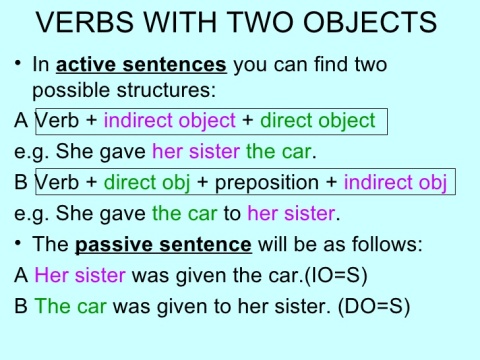
Variant 1
18.04.20
H/t Do the exercise on Present/Past Continuous Passive (presentation) - Passive voice presentation)
To learn all the possible forms of the Passive Voice watch the video below:


- The house ____________(to build) in 2020.
- The boy _________ (not to hear) the news yet.
- The Brooks ___________(to become) famous last year.
- Money _____________(to keep) in the bank.
- The parcel __________(to send) yesterday.
- I would like ________________(to know) English very well.
- Where _________the road _______(to lead) to?
- Look! The leaves _______________(to fall).
- All the money ___________(to spend) on clothes last week.
- The pie has gone! Who _________(to eat) it?
18.04.20
Present Continuous Passive
https://www.liveworksheets.com/worksheets/en/English_as_a_Second_Language_(ESL)/Passive_voice/Passive_present_continuous_kg64368uh
16/04/20
Passive Voice презентация (перейдите по ссылке, просто нажав на нее)

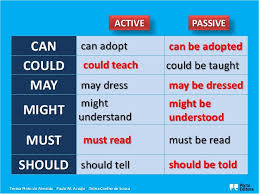
What should /shouldn't be done not to fall ill?
15/04/20 We recollect the Passive Voice:
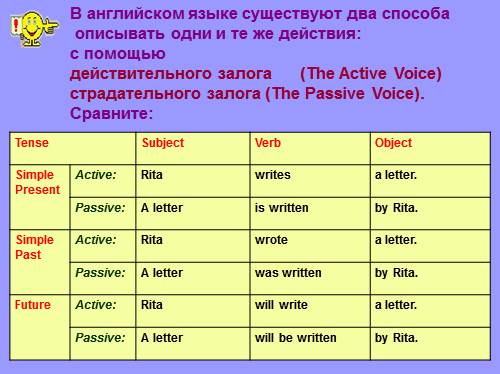
Примеры
| Active: | Peter | builds | a house. | Simple Present |
| Passive: | A house | is built | by Peter. |
| Active: | Peter | built | a house. | Simple Past |
| Passive: | A house | was built | by Peter. |
| Active: | Peter | has built | a house. | Present Perfect |
| Passive: | A house | has been built | by Peter. |
| Active: | Peter | will build | a house. | will-future |
| Passive: | A house | will be built | by Peter. |
| Active: | Peter | can build | a house. | Modals |
| Passive: | A house | can be built | by Peter. |
- Breakfast was cooked by our mother.
- The new rule was explained to us at the English lesson.
- The story was written by Chekhov.
- This sports centre was visited by lots of people.
- This sports game is often played at P.E. lessons.
- The ball was thrown over the fence.
- The boxer was knocked down.
- I was born in Moscow.
- They will be trained by a famous coach.
- I will be sent to the competition.
1. My question (to answer) yesterday. 2. Hockey (to play) in winter. 3. Mushrooms (to gather) in autumn. 4. Many houses (to burn) during the war. 5. His new book (to finish) next year. 6. Flowers (to sell) in shops and in the streets. 7. St. Petersburg (to found) in 1703.8. Bread (to eat) every day. 9. The letter (to receive) yesterday. 10. Nick (to send) to Moscow next week. 11. I (to give) a very interesting book at the library last Friday. 12. Many houses (to build) in our town every year.
- We learn English. —
- The teacher asked the students a question. —
- They told me about the accident. —
- We will find our pets. —
- Next year we will learn French. —
- The teacher asked her a question. —
- I take my dog out every day.
06.04.20
H/t for Wednesday : ex 1 p 209 orally, ex 4 p 211 write
Презентация Future tenses (перейдите по ссылке для дальнейшего просмотра и изучения)
Способы выражения будущего времени в английском языке. http://grammar-tei.com/sposoby-vyrazheniya-budushhego-vremeni-v-anglijskom-teoriya-i-uprazhneniya/
| Future Simple | Future Continuous | Future Perfect | Future Perfect Continuous |
| Will+V | Will be +Ving | Will have +V3 | Will have been +Ving |
a) предсказания по поводу будущего со словами think, believe, expect, etc
b) решения, принятые в момент говорения
с) обещания
d) действия, которые точно произойдут в будущем
| а) действия, которые будут длиться в момент будущего | а) действия, которые закончатся до момента в будущем | a) действия, которые будут длиться до момента в будущем |
| I think the weather will be rainy tomorrow. | Tomorrow at 5pm I will be flying to Riga. | I will have read this article by 5pm. | By 3pm tomorrow I will have been running for 50 minutes in our city marathon. |
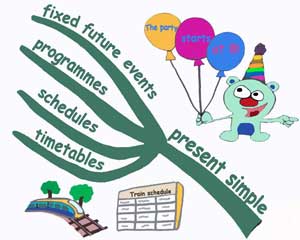 В разговорах о расписании (событий / транспорта),
В разговорах о расписании (событий / транспорта),- В разговорах о графиках (мероприятий),
- Относительно программ (мероприятий / передач на радио и тв)
The train leaves at 5pm in the evening.The meeting begins at 8 sharp tomorrow.Hockey is at 6pm.
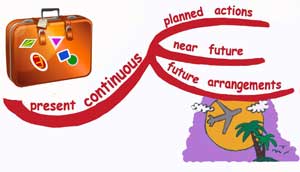 Present Continuous используется для выражения будущего времени в следующих речевых ситуациях:
Present Continuous используется для выражения будущего времени в следующих речевых ситуациях:- для выражения запланированного на ближайшее будущее действия (особенно с глаголами движения),
I'm flying to Kongo next Monday. — Я лечу в Конго в следующий понедельник.
- reasons for travelling;
- season and longevity of travelling;
- means of transport;
- places to stay in;
- sightseeing; entertainment.
Card 1.
26.02.20 Задания в формате ВПР
There are lots of reasons to eat breakfast, especially for teenagers. Breakfast gives a person lots of energy. If a pupil skips his or her breakfast, they may not be attentive enough at school or even fall asleep in class! A good breakfast also builds strong bones and teeth. Many people have milk and other dairy products for breakfast, which help the body to grow strong teeth and bones. A full breakfast keeps people from getting hungry quickly. In many cultures people think that breakfast is the most important meal of the day.
|
A
|
B
|
C
|
D
|
E
|
The Crow and the Bottle of Water
One hot day, a crow was very thirsty. She needed water to drink. She found a bottle that had once been A ______ of water. But now the bottle was B ______ empty. The C ________ crow tried to reach the water with her sharp beak, but the neck of the bottle was too narrow. Again and again she tried, but the bottle was too D ______ .She couldn’t get even a little bit of water. The crow thought for some time. Soon an idea came to her. She could make the water rise! She took a little stone and put it into the bottle. Then she took another stone and put it in. She kept putting more and more stones into the bottle. Each stone made the water rise a bit. And every time the crow had more hope. At last, the water was high enough for the crow to drink. And so she lived to see E ______ day.
|
1) away
2) full
3) almost
4) tall
5) another
6) different
7) poor
|
A
|
B
|
C
|
D
|
E
|
Словообразование (ВПР, ОГЭ) - тренировочные упражнения
Ex. 8. Найдите и выделите суффиксы в данных словах и определите, к какой части речи эти слова относятся:
22/02/20
19/02/20
Lewis Caroll
Lewis Caroll was a famous nglis writer.His name is a pseudonym of Charles Lutwidge Dodgson (1832 — 1898). He was an English logician, mathematician, photographer, and novelist, especially remembered for Alice’s Adventures in Wonderland (1865).

Watch a movie Alice in Wonderland. Follow the link and enjoy the story! The movie is in Russian but you're welcome to watch it in English if you want to. After you have watched the film, you are to write the summary of the film (write about the plot, the main characters, the events, if you recommend to watch the film or not and give the reasons, why)

14.02.20 Lexical Test (Unit 6)
- Cleaning the flat is my ……… duty.
- a) pleasant b) ugly c) horrible d) household
Remember the way we read big numbrs in English:
18/01/20:
Задание в формате ОГЭ -

Говорение (Speaking) - Чтение книг (Reading books):
12/01/20
24/12/19




Describing Photos
- I’d like to describe picture № 1.
- The picture shows a boy/a girl/a young girl/a schoolboy/ a teenager/a family/a group of people (+ V+ing (standing, sitting, playing, etc.)
- He is /She is /They are posing for the photo.
- (Where?) Obviously, he is/she is/they are ….in the classroom/in the garden/in the park/at the seaside/at the stadium/ at the playground/at school.
- He/she looks + Adjective: happy/sad/tired/upset/serious/interested in what she/he is doing.
- His/her face is…(round/oval).
- Her /his hair is …blond/dark/brown/grey/black/straight/curly/wavy/long/short/
- Her /his eyes are (blue/brown/green)/
- He/she is wearing (a T-shirt/shorts/jeans/trousers/ a skirt/ a blouse/ a dress/ a suit/a sweater/ boots/ sneakers/ sandals).
- The weather is…(warm/cold/hot/sunny/rainy).
- I like the picture / I don’t like the picture because it reminds me of my ….summer holidays / my friends / my grandparents / my trip to…
- That’s all I wanted to say. Thank you for listening.
19/12/19
/xs3qstsrc5F810DE19EED9F3143C8F929AC5EE719_6_1483014214.jpg)
18/12/19
We write a Private Letter in English
14.11.19 Describe one picture:
13.11.19 Perfect Tenses
https://www.liveworksheets.com/worksheets/en/English_as_a_Second_Language_(ESL)/Verb_tenses/past_simple_vs_present_perfect_ml1291ul
https://www.liveworksheets.com/worksheets/en/English_as_a_Second_Language_(ESL)/Present_Perfect_and_Past_Simple/Present_Perfect_and_Past_Simple_ix21976ob
22.10.19 Word Formation
https://www.liveworksheets.com/worksheets/en/English_as_a_Second_Language_(ESL)/Word_Formation/Word_formation_yd12021vc
12.10.19
a man – men
a woman – women [‘wimen]
a foot – feet
a tooth – teeth
a goose – geese
a mouse – mice
a louse – lice (вошь)
a child – children
a person - people
a sheep – sheep
a swine – swine (боров, хряк)
a deer – deer
an ox – oxen (бык)
fish – fish/ fishes (разные виды)
a fruit – fruits (разные виды)
a brother – brethren (собратья, братия)
|
Сложные слова:
bookcase – bookcases
tooth brush – tooth brushes
But:
1. father-in-law –
fathers-in-law
passer-by – passers-by (прохожий)
(окончание добавляется к
ключевому слову)
2. forget-me-not –
forget-me-nots (незабудка)
merry-go-round – merry-go-rounds (карусель)
3. postman – postmen
woman doctor – women doctors
man doctor – men doctors
|
Слова греческого и латинского происхождения:
crisis [‘kraisis] – crises [‘kraisi:z]
phenomenon – phenomena
medium – media (средство)…
|
05.10.19 English Tenses (Active)
Видовременные формы глагола.
Действительный залог.
|
||||
Группы
|
Indefinite/ Simple
(неопределенное/
простое)
|
Continuous/ Progressive
(длительное/
продолженное)
|
Perfect
(совершенное)
|
Perfect Continuous
(совершенно-длительное)
|
Характеристика
|
Констатация
факта
V1
|
Процесс
выполнения действия
To be + participle I (Ving)
|
Завершенность,
результат
To have + participle II (V3)
|
Завершенность
и длительность
To have been + participle I (Ving)
|
PRESENT
|
every day, often, usually, seldom, always, never, sometimes,
once a year
+: V1 or Vs (3л., ед.ч.)
- : do/ does (3л., ед.ч.) + not + V1
?: Do/ Does + S + V1?
Who + Vs?
!!! to be – am/ is/ are
(сам строит + , -, ?)
|
now, at the present moment, still
+, - , ?: am/ is/ are + Ving
Who + is + Ving?
|
this morning, today, already, just, lately, recently, yet, since, for,
never, before, so far (до тех пор пока)
+, -, ?: have/ has (3л., ед.ч.) + V3
Who + has + V3?
|
for, since, how long
+,-,?: have/ has (3л., ед.ч.) + been + Ving
Who + has been + Ving?
!!! Указание обстоятельства
времени обязательно.
|
PAST
|
yesterday, a week ago, last year,
the other day (на днях)
+: V2
- : did + not + V1
?: Did + S + V1?
Who + V2?
!!! to be – was/ were
(сам строит + , -, ?)
|
all day long, the whole evening, while, still from 5 till 8, at 5
o’clock yesterday
+, - , ?: was/ were + Ving
Who + was + Ving?
|
by the time, before, by the end of the week, when he came,
hardly … when (едва только … как),
scarcely … when, nearly … when,
no sooner … than
+, -, ?: had + V3
Who + had + V3?
|
for, since
+,-,?: had + been + Ving
Who + had been + Ving?
!!! Указание обстоятельства
времени обязательно.
|
FUTURE
|
tomorrow, in a week
+: shall (I, We)/ will + V1
- : shall/ will + not + V1
?: Shall/ Will + S + V1?
Who + will + V1?
!!! shan’t [ζa:nt], won’t [wount]
to be – be
|
at 5 o’clock tomorrow, all day long, the whole evening, from 5 till 8,
still
+, - , ?: shall/ will + be + Ving
Who + will be + Ving?
|
by the time, before, by the end of the week, by then, when he comes,
till/ until (для --)
+, -, ?: shall/ will + have + V3
Who + will have + V3?
|
for + length of time, by … for
+,-,?:shall/ will + have been + Ving
Who + will have been + Ving?
!!! Указание обстоятельства
времени обязательно.
|
FUTURE-
in the PAST
|
Для передачи косвенной речи
+, -, ?: should (I/ We)/ would + V1
|
Для передачи косвенной речи
+, -, ?: should (I/ We)/ would + be + Ving
|
Для передачи косвенной речи
would
|
----------------------------------------------------
|
30.09.19
Phrasal verbs
look
1. after - присматривать
2. at - смотреть на
3. up in - посмотреть в источнике (dictionary)
4. for - искать
5. through - просматривать; смотреть через (the window)
make
1. up - краситься, сочинять
2. out - понимать, преуспевать
3. off - убежать, скрыться (обычно с чужим, краденым)
give
1. back - возвращать, отдавать
2. out - раздавать
3. away - отдавать, дарить; выдавать секрет
4. up - перестать заниматься ч-либо, бросить
Never give up - Не сдавайся
take
1. back - взять свои слова обратно, возвращать
2. after - быть похожим на к-либо, пойти в кого-либо
3. down - снять сверху; делать записи
4. away - унести, убрать, вычитать
5. off - снимать (об одежде); взлетать (о самолете)
6. apart - разбирать на части
26.09.19 Simple tenses
- We … (go) roller-skating last Saturday.
- Our granny … (bake) meat-pies every weekend.
- We … (write) an essay tomorrow.
- I really … (enjoy) the opera yesterday.
- Where your husband … (work) five years ago?
- British people … (prefer) tea to coffee.
- Tom, you … (meet) me at the railway station next Sunday?
- Where she usually … (celebrate) her birthdays?
- … you (have) a big family?
- Newton … (invent) the telescope in 1668.
- When … this accident (happen)?
- I always … (send) Christmas cards to my grandparents.
- Nina and Nick … (get married) in two weeks.
- How many books they … (bring) tomorrow?
- Stanley … (have) two sons and a daughter.
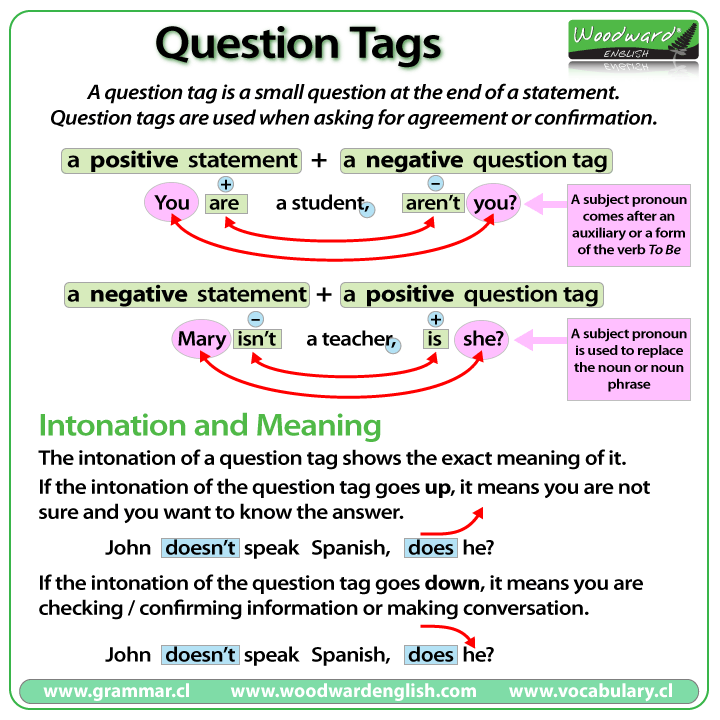
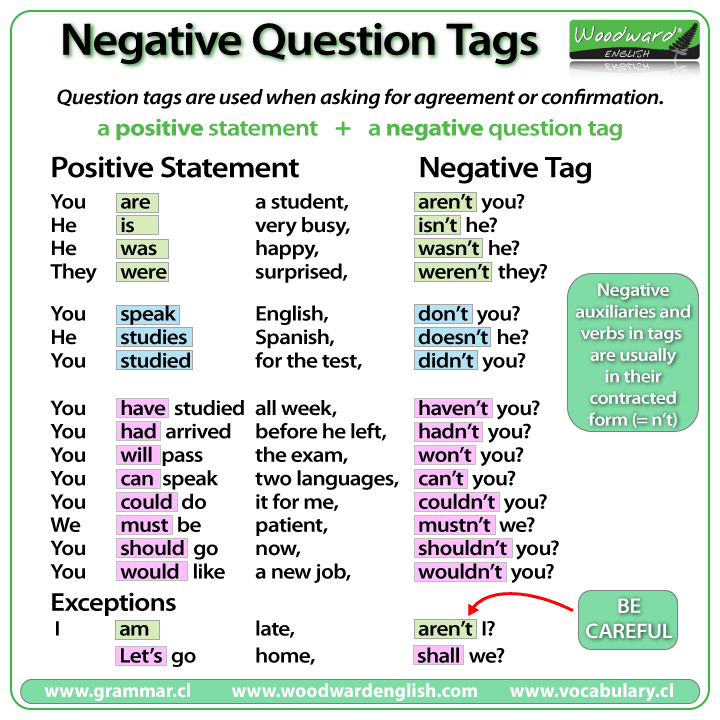
Exceptions
- She is collecting stickers, ?
- We often watch TV in the afternoon, ?
- You have cleaned your bike, ?
- John and Max don't like maths, ?
- Peter played handball yesterday, ?
- They are going home from school, ?
- Mary didn't do her homework last Monday, ?
- He could have bought a new car, ?
- Kevin will come tonight, ?
- I'm clever, ?
- Exercise 2 Write the tags:
1. This isn't your pen, it? 2. You don't want this book, you? 3. This food isn't very nice, it? 4. He doesn't work, he? 5. They aren't happy, they? 6. I'm not good at this, I? 7. You don't like shopping, you? 8. We aren't late, we? 9. She doesn't smoke, she? 10. It isn't a very nice day, it?
Picture description:
Описание фотографии (картинки).
18/09/19
We write a letter in the following way:

H/t for 09.09/19
AB ex 1 p 3 write questions and the answers to them, ex 5 p 6-7 read, translate+the task.
H/t for 7.09.19
Ex 1-3 p 4-5 speak about the Russian Federation (18-20 sentences),
EX 5 P 6 write (compare Russia and Great Britain)


































































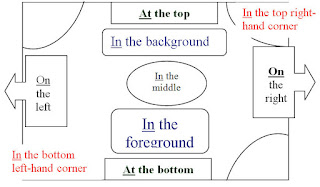
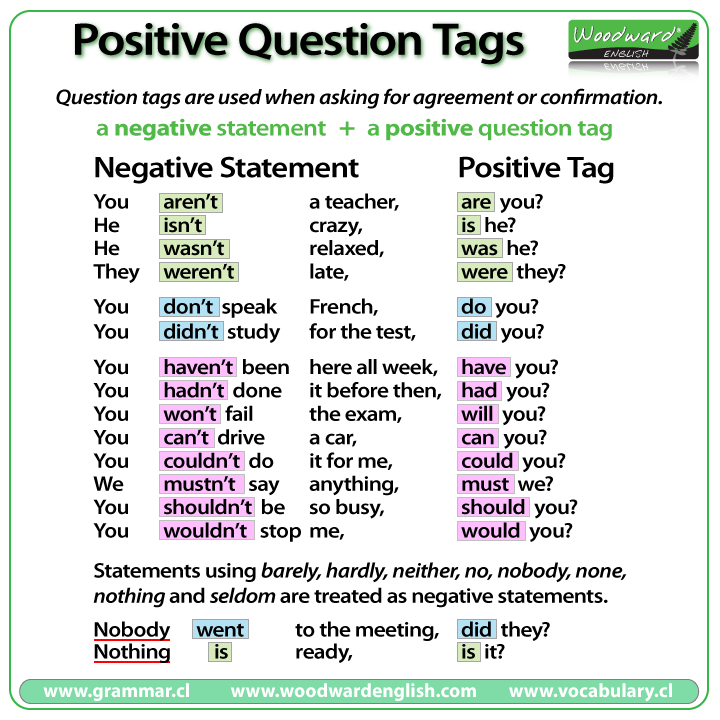


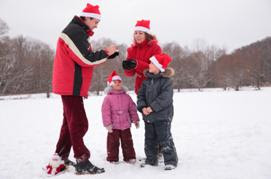

привет
ReplyDeleteпро изучение языка уже много написано как в самой сети, так и в реальной жизни, но ... я считаю что школьный материал хоть и полезен но и он не отражает всю суть а позднее и практику использования, и в данном конктексте лучше всего его дополнить языковой практикой хотябы с курса https://englishpapa.ru/ потому как чем больше вы практикуетесь тем лучше становитесь как в личном так и в профессиональном плане
ReplyDelete